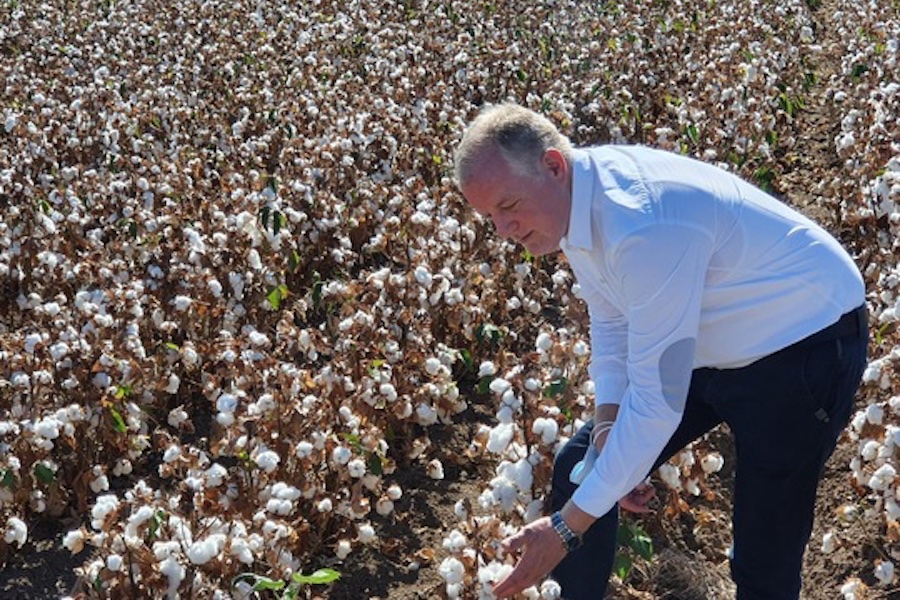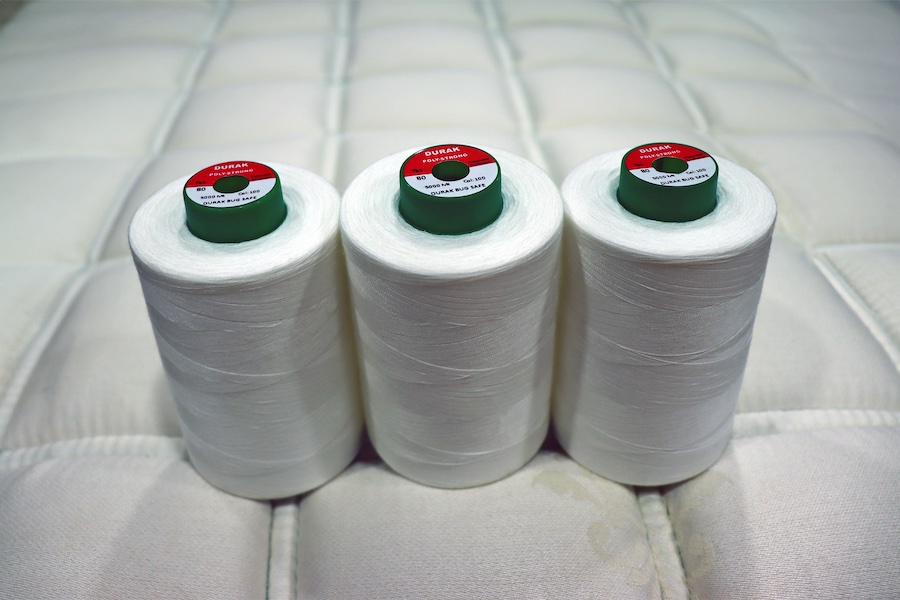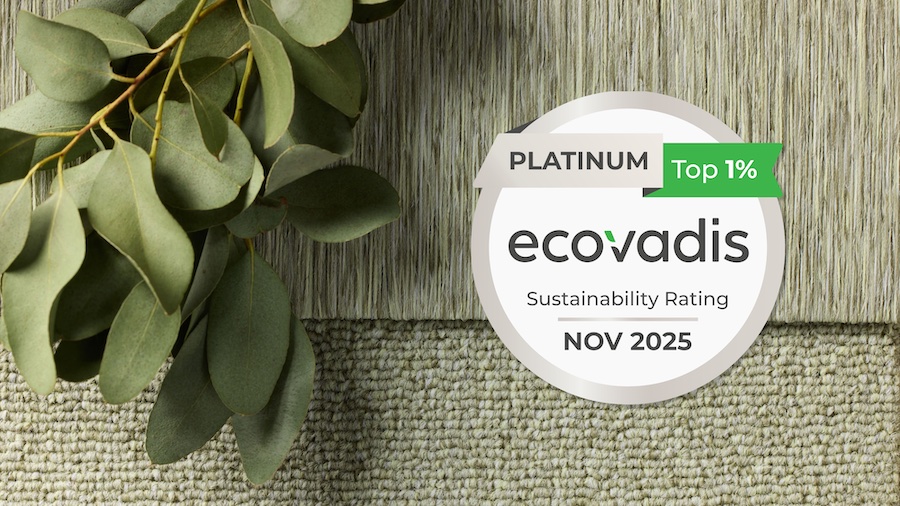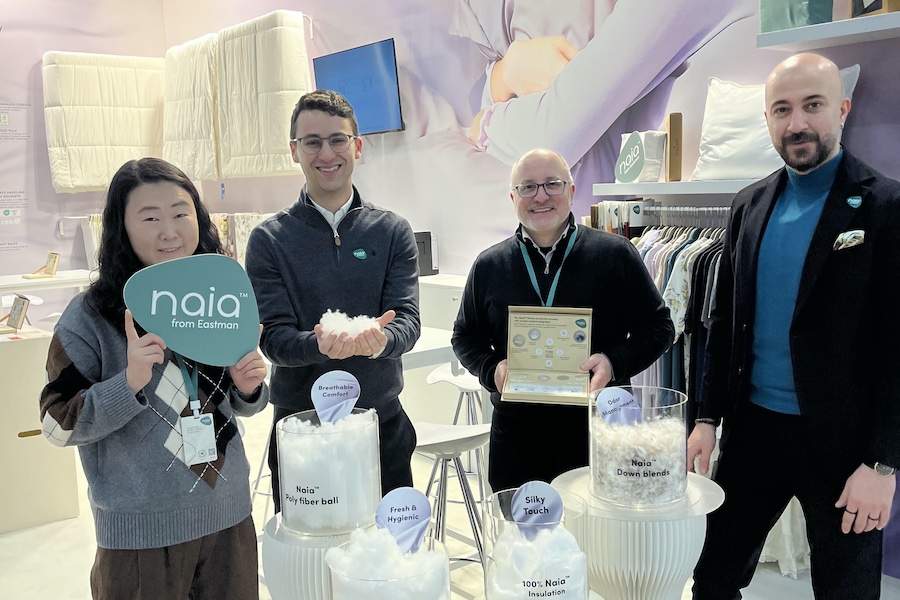#Yarn & Fiber
Gebr. Otto expands near-shoring portfolio: yarns with ‘EU-COTTON’ certification now in the programme

Apart from that, the local approach is becoming increasingly important for Gebr. Otto in view of the latest developments in customs policy.
‘We are pleased that we at Gebr. Otto can now also offer EUCOTTON yarns,’ says Andreas Merkel, managing director of the Upper Swabian textile company Gebr. Otto. ’The EUCOTTON initiative is timely and forward-looking for many reasons.’
Small market share, high quality
The European appetite for new textiles is considerable, but the possibilities for tracing the origin of the textiles are limited. In addition, the fibres ‘grown in Europe’ are of exceptionally high quality, and demand worldwide is high.
European raw cotton comes from Spain and Greece. So far, a quarter of these fibres have also been processed in Europe. The rest is exported, sometimes via long detours to Southeast Asia, before returning to the EU as textile end products. ‘This makes little sense for ecological reasons alone,’ says Otto CEO Merkel. In view of the increasing trade restrictions and problems in global supply chains, European sourcing must be prioritised. ‘It should be our aim to process the majority of European cotton in Europe, especially since it is of exceptionally high quality.’
Advantages of European cotton growing
The high quality of EUCOTTON yarns is based on advanced production methods, including exclusively mechanical harvesting. The careful harvesting methods ensure that the fibres are almost free of impurities, for example from foreign fibres. The latest technology is also used for cleaning and ginning.
Cotton fibres from the Spanish and Greek harvests are exceptionally uniform in terms of fibre length, strength and thickness. ‘All of this contributes to the spinnability of the fibres,’ says Andreas Merkel. ‘They can also be processed in an enormous variety of ways.’
Responsibility grown
Beyond the technical advantages of the raw material, EUCOTTON offers important benefits in terms of ecological and social responsibility: the GMO-free seeds protect the ecosystem and natural resources. The same goal is pursued by water management: cotton growing is water-intensive and measures such as drip irrigation and precision farming can reduce the impact. The principle of minimisation also applies to the use of pesticides and insecticides.
‘If we source our cotton from Europe, we can be sure that the legal framework, for example with regard to working hours and occupational safety, is being adhered to,’ adds Andreas Merkel.
Short distances create reliability
In addition to transparency and high quality, reliable and fast availability are another argument in favour of EUCOTTON. ‘Of course, high-quality cotton also grows elsewhere in the world, for example in Peru or the USA. However, it then has to endure a six- to eight-week sea voyage before it arrives in Germany.’ From Spain, the raw cotton reliably travels by truck to the doorstep of the processor in just five days.
EUCOTTON captures the spirit of the times
‘At Gebr. Otto, we have long placed great value on short, reliable and transparent supply chains,‘ explains Andreas Merkel. “Although we do not fall under the Supply Chain Act due to the size of our company, we meet its requirements, for example with cotton yarns from our brand ”Cotton since 1901: Made in Germany’’. For these ultra-fine cotton yarns, Gebr. Otto processes extra-long-staple cotton fibres from Andalusia in southern Spain.
The company has had very good experiences with this approach: ‘We are increasingly aware of our customers’ desire to offer transparency to the end customer.’ Gebr. Otto's experiences with the new EUCOTTON addition are correspondingly positive: “High-quality European brand manufacturers are very interested in yarns with this label,” says Merkel.













